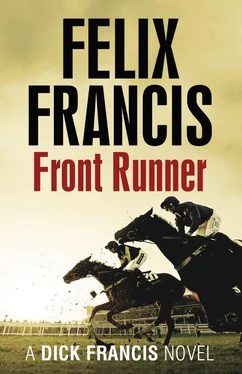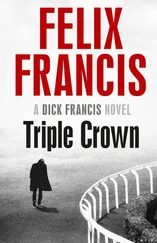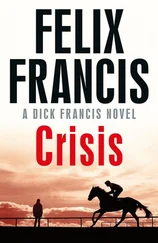I was again wearing a faded blue hospital gown.
‘They’re in the wash,’ I said.
‘Had a little accident, did we?’
‘Something like that, but not what you’re thinking. A few of my stitches burst open and I bled onto them.’
She looked concerned.
‘Surely that shouldn’t happen.’
‘No,’ I said without elaboration.
‘I should have bought you two pairs. Shall I go and get you some more?’ She reached for her coat.
‘No,’ I said again, this time more decisively. ‘Please stay. Unless, of course, you can’t speak to anyone wearing a hospital gown.’
‘I’ll make an exception,’ she said, smiling. ‘Just this once.’
She stayed for two hours, at one point delving into her copious handbag to find a half bottle of Chablis and some glasses, together with some freshly packed sushi.
‘Red Cross parcel,’ she said, giggling.
‘The food here’s not too bad, except everything is overcooked. And it’s pretty bland, as they use little or no salt.’
Henri turned up her pretty nose. ‘I like my salt,’ she said. ‘And I can’t live without freshly ground black pepper.’ She produced a small silver cylindrical object from her handbag and proceeded to grind black peppercorns from it onto her food. ‘I’m fed up with going to those big lunch and dinner events at swanky London hotels and not being able to get hold of a pepper mill. They all think you’re mad asking for one. So I bought myself this to carry with me.’
‘Handy,’ I said.
She popped another piece of raw fish into her mouth and washed it down with some wine.
‘I see you got your phone back,’ she said, nodding at it on my bedside locker. ‘I can call you again now.’
‘Yes, please do. My sister fetched it for me.’ I picked it up and used it to take a photograph of Henri sitting on the edge of my bed, looking fabulous in her red tartan dress.
‘Let’s see,’ she said. I showed her. ‘Not bad for an old one.’
‘Old one?’ I said. ‘You’re not old.’
‘Thirty,’ she said. ‘Can you believe I’m going to be thirty in February? I remember thinking that people aged thirty must be so old they were nearly dead, and now I’m almost there myself.’
She studied the picture. ‘At least I can’t see any wrinkles yet.’
She started flicking through the other pictures on my phone.
‘Hey,’ I said in mock complaint, ‘that’s private.’
‘Good God, that’s Martin and Bentley,’ she said, looking closely at the screen. ‘How come you have a photo of my cousin on your phone?’
She didn’t ask it in an accusatory manner, she was just interested. I leaned forward and peered at the image. It was the photo of the two men who’d been arguing at Newbury, taken through the window of the Hennessy hospitality area with the racecourse in the background.
‘I was snapping the view,’ I said. ‘They just happened to be in the shot. It’s at Newbury races.’
‘What a coincidence.’
‘Who’s Bentley?’ I asked.
‘Bentley Robertson. He’s a creepy little lawyer,’ she said, screwing up her nose again. ‘He’s all work and no play. A bore. Worse, he’s a bore who thinks I’m in love with him. I keep telling him that I’m not but he just winks at me and refuses to believe it. He’s a letch. At least, he is towards me. I once quite liked him but now he makes my skin creep.’ She shivered. ‘But enough about him. Tell me more about you.’
We sat in happy harmony talking about everything and nothing — where we grew up, schools, jobs, likes, dislikes, even our families and our dead parents.
‘It was such a dreadful time,’ Henri said. ‘I was sixteen. Mum and Dad were on their way to pick me up from the sports field at Malvern College, where I was a boarder. We were going to a family wedding in Lincoln. I can remember being so excited about going in a helicopter.’ She paused and there were tears in her eyes. ‘They never arrived. I waited and waited for hours, but they never came. Eventually, the headmaster came out to where I was standing to tell me.’
A tear ran down her cheek. I reached over and held her hand.
‘They clipped a tree in the garden during take-off. The official report said it was the pilot’s fault. He was also killed in the crash, so I suppose it’s easy to blame him.’
She was silent for a while.
‘Sorry,’ she said, wiping her eyes with a tissue. ‘I don’t do that very often any more.’
‘There’s no reason to be sorry,’ I said. ‘I still cry sometimes over my mother and she’s been dead now for twenty-four years. Sometimes I have difficulty recalling her face, and I haven’t been able to hear her voice in my head for longer than I wish to remember.’
‘What about your dad?’ she asked.
‘I don’t usually talk about him much. He went off the rails after my mother died. He couldn’t cope without her. Everything in the house, cooking, washing, cleaning and so on, he left for my sister to do. He started drinking too much and lost his well-paid job with the council because of it. He ended up as an assistant gardener in a local park but he was usually legless. He was only kept on due to the kindness of his old council chums who felt sorry for him.
‘I actually remember him really well. He was drunk a lot of the time, but he was always kind and loving towards me, even if he wasn’t ever particularly happy. He drank himself to death in the end, although the official cause was pneumonia.’
‘How old were you?’
‘Fourteen,’ I said. ‘I can remember his funeral as if it was yesterday.’
‘Who then looked after you?’
‘Faye. My sister. She’s twelve years older than me. She became my official guardian. Then I joined the army at eighteen.’
‘Which regiment?’
‘The Intelligence Corps,’ I said, making a mock salute. ‘Two-five-one-nine-eight-two-four-one, Captain Jefferson Roosevelt Hinkley, at your service.’
‘Jefferson Roosevelt?’ she said incredulously. ‘You’ve got to be kidding.’
‘I am not,’ I said in my most superior tone of voice. ‘My parents clearly admired dead American presidents.’
Henri laughed.
‘Don’t you start,’ I said. ‘I was endlessly bullied at school because of it.’
But at least it had taught me to fight, and that had always been an asset, not least during the previous night.
After constant badgering, the doctors finally agreed that I could go home on Sunday morning. I think they were glad to see the back of me — I know the nurses were. They didn’t appreciate having a potential killer on the prowl.
To be honest, and for the same reason, I was grateful when Quentin arrived in his BMW to drive me to Richmond rather than to my flat in Harlesden.
I’d been in hospital for a whole week but, in many ways, it seemed longer.
I was eager to get back to work in spite of the dire warnings I’d been given by Doctor Shwan about having to take things easy for a while. In particular, I wanted to continue my look into Bill McKenzie’s riding and the gambling habits of Leslie Morris, and to rescue the investigation from the desk of Paul Maldini.
Was it just eight days since I’d met Henrietta Shawcross at Sandown Park races? It seemed that I had known her for ever.
She had come into the hospital on Saturday afternoon and we had watched the Channel 4 coverage of racing at Cheltenham and Doncaster.
‘I’m sorry I can’t stay late tonight,’ she’d said. ‘I’m going to a dinner at the Dorchester. It’s the Christmas party for all our UK staff and their wives. We do it every year.’
‘For Reynard Shipping?’
‘Yes. I promised Uncle Richard I’d be there.’
Читать дальше












